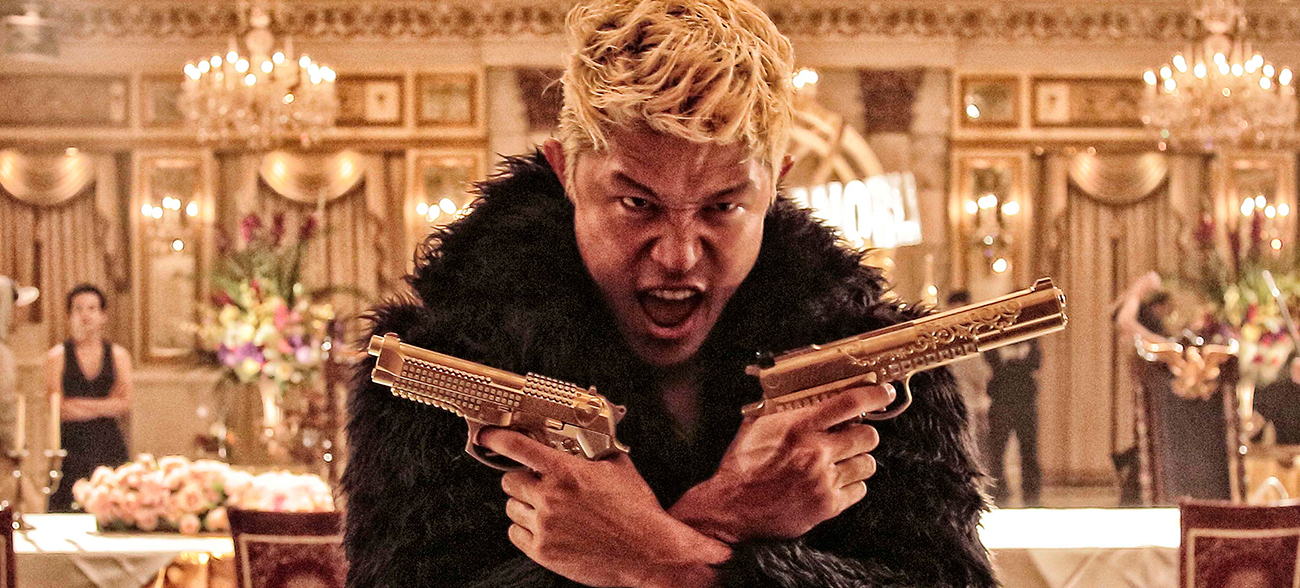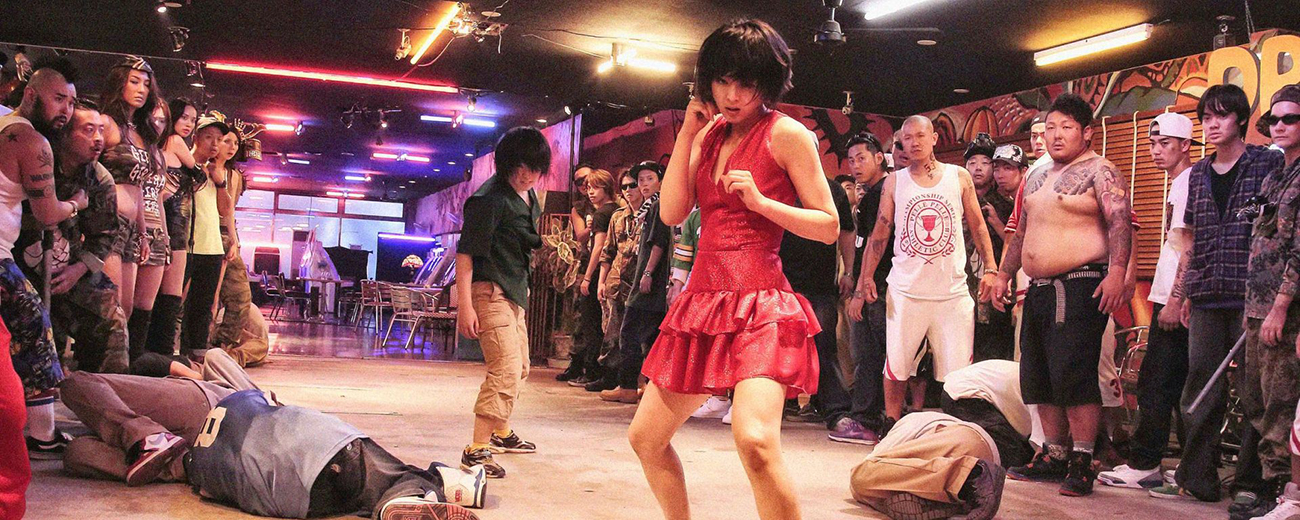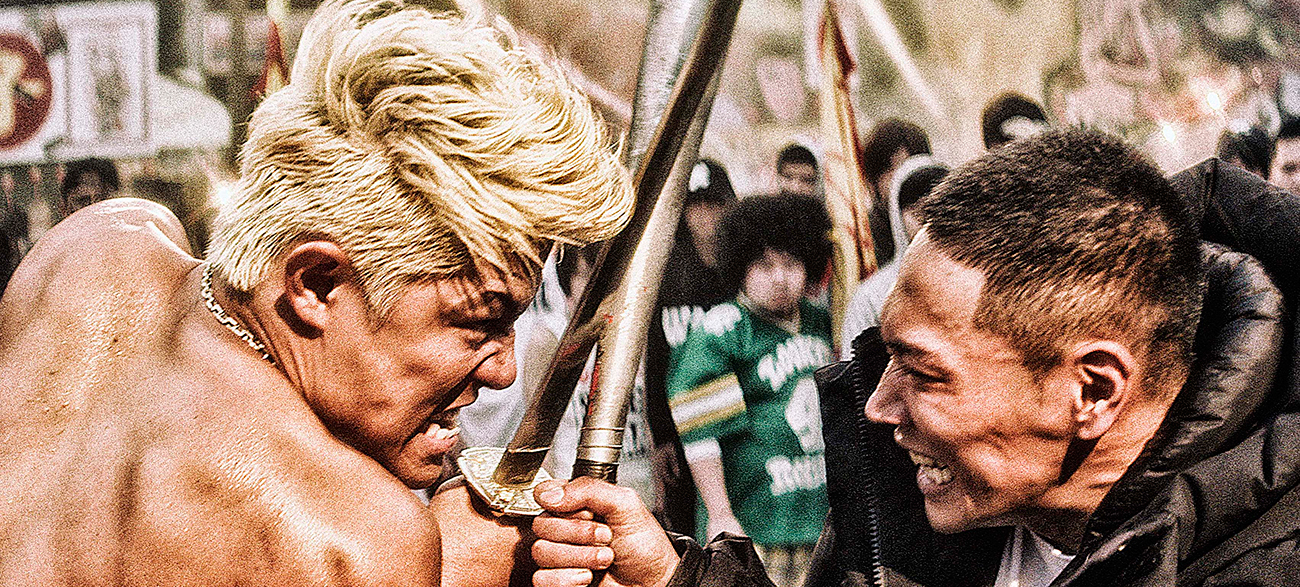DISCLAIMER: Filmmaker Sion Sono has been accused of sexual harassment and abuse by several actresses in Japan’s film industry. To learn more about these allegations, please read this report by Variety and visit this Twitter thread by actor Yuki Matsuzaki.
Filmed in Ether does not tolerate any form of sexual misconduct and condemn those that abuse their positions of power. In light of these allegations, Filmed in Ether will no longer produce any coverage and publicity for any of Sion Sono’s films, new and old, moving forward.
As we are an Australian-based publication, please seek out these Australian support services if news of Sono’s allegations have caused you distress.
No good artist ever gets too comfortable with their craft, otherwise there’s really nothing to separate them from the pack. It’s why certain names get elevated over others, simply because they have a voice that doesn’t adhere to something that’s uniform and one that’s willing to go the extra mile. When Kendrick Lamar dropped his now famous verse on Big Sean’s track, ‘Control’, he put the entire rap game on notice.
In Lamar’s ‘Control’ verse, the rapper called out several of his peers – all relatively big names in the hip-hop community – and had essentially told them to lift their game because he was already quickly surpassing them all with his own lyricism, flow and overall quality. While it wasn’t intended as a ‘diss track’ (nor was it a coming-out party for the rapper who already won fans and critics over with his acclaimed album, ‘good kid M.A.A.D city’) Lamar’s verse became a huge talking point in hip-hop circles and eventually inspired responses from the same people he called out.
The same could be said of Japanese director Sion Sono. Despite an already long career as a filmmaker, Sono’s name became far more noticeable amongst filmgoers once he released his four-hour opus, Love Exposure. Now with his latest feature Tokyo Tribe, a comedic action rap musical, Sono gives to audiences his own ‘Control’ verse. With Tokyo Tribe, the filmmaker manages to carve yet another refreshingly arresting feature, one that that truly does feel like as though it puts the admittedly stagnant Japanese filmmaking scene on notice.

Based on a manga, the film is set in a beautifully nightmarish version of Tokyo where each district is ruled by nefarious gangs, each with their own set of principles and their own introductory raps. When members of the Musashino Saru are lured into Wu-Ronz territory in Bukuro, it ignites a war between the two rival gangs which eventually involves every other gang in Tokyo. The film is guided by an elusive rapping narrator, MC Show (Himizu’s Shota Somentani), who weaves in and out of the narrative.
Tokyo Tribe has a pulsating energy to it that is unlike anything Sono has put out before. The film’s fun rhythm and energy is largely infectious and in terms of its ambition, it’s hard to even compare Sono’s rap musical to anything else currently available in Japan or anywhere else.

Flow, ever so important in rap, is something that Sono’s film certainly doesn’t lack in as Tokyo Tribe is punctuated by a myriad of gorgeously smooth, long single-take shots that mesh beautifully with the film’s action set-pieces and are edited well into the rap performances themselves. Sono’s kinetic camera is just as much a participant in the film as its characters are and is equally important in building the fictional universe of the film. Tokyo Tribe’s wonderfully orchestrated opening sequence is an example of this as Sono’s camera moves from one person to the next in a single uninterrupted shot as they navigate their way around town – establishing the world of the film while also giving audiences a personal tour of it.
And much like how Why Don’t You Play In Hell? was Sono’s own love letter to filmmaking, Tokyo Tribe certainly feels like as though it demonstrates a respectful and appreciative attitude towards rap culture while also being uniquely Sono at the same time. The film could have easily been phoned in or thrown pot shots at rap music and the culture surrounding it but Sono’s enthusiasm towards it appears to be quite genuine, especially considering his casting of actual rappers for the film – a solid move that only further cements Tokyo Tribe’s hip-hop music video aesthetic.

If you ever thought to yourself a film like Crows Zero or The Warriors could have used with a whole heaping dose of rap, Sion Sono’s Tokyo Tribe will certainly get you there. Destined for cult status, Tokyo Tribe stands out head and shoulders above its competition simply based on its brazen attitude and compellingly unique viewing experience. What could have been yet another street gang film is transformed into something spectacular just by simply turning the tried-and-true formula on its head by making it into a lavish musical.
With Tokyo Tribe, Sion Sono challenges other filmmakers to make a film as exhilarating, exciting and daring as his. Only time will tell if anyone will respond and step up to the challenge that Sono has laid out to his filmmaking peers. But for the time being, we have to ask ourselves where does director Sono’s unpredictable film career go from here?
This review originally appeared in Japan Cinema.
